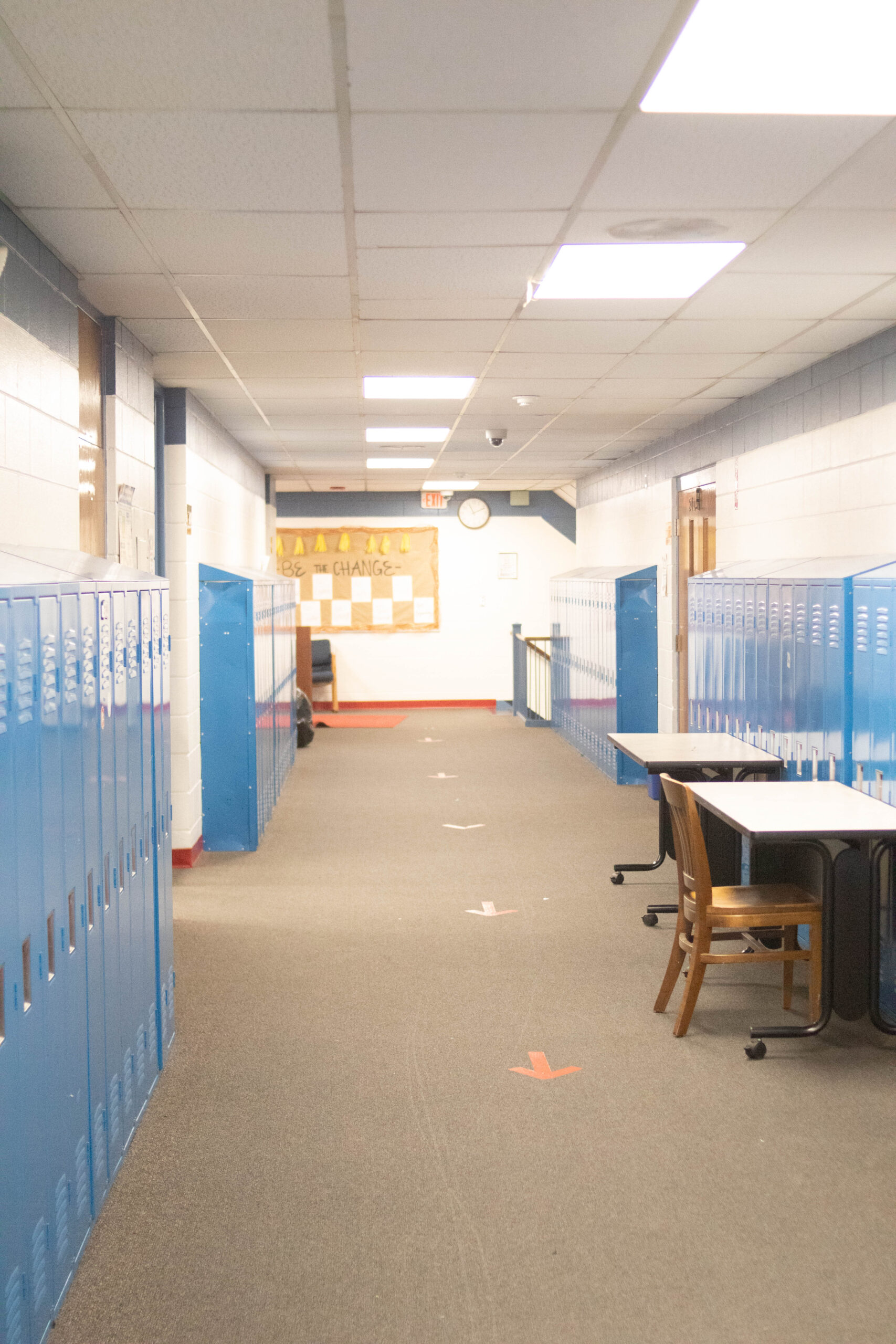A student’s academic success and overall growth are significantly impacted by parental involvement in education. This fosters positive attitudes toward learning and improved communication skills. Parental involvement also enhances emotional well-being and sets a foundation for future success.
We at Central Christian Academy provide you with a comprehensive guide to engaging in your child’s education, as well as offer strategies for you to enhance your involvement.
Understanding the Current Educational Landscape
Indiana boasts a diverse educational landscape with public, private, charter, and magnet schools. This emphasizes school choice, innovative teaching, and community engagement.
The state sees the rise of charter schools, STEM education, and collaborations with local entities. However, with this rise, students also face challenges such as socioeconomic disparities, housing instability, and limited resources, highlighting the need for equitable education.
Parental involvement shines as a positive force, enhancing academics, motivation, communication, and advocacy for resources. This ultimately fosters holistic student development within this dynamic educational context.
Setting the Foundation: Building a Supportive Environment
It’s paramount to establish a solid groundwork for your child’s educational journey, by creating a positive home learning environment. You may accomplish this by designating a study area, ensuring access to essential resources, and encouraging a routine that prioritizes learning. These steps will instill responsibility and accomplishment.
By forging effective communication channels with your child’s teachers, and the school you will gain insights into your child’s progress and strengths, as well as addressing challenges and personalized learning. This can be achieved through emails, parent-teacher conferences, and online platforms.
Taking an Active Role in Academic Progress
Actively engaging in your child’s academic progress is vital for their success. The engagement involves monitoring academic performance, identifying strengths and weaknesses, providing assistance with homework, and nurturing effective study habits.
You can accomplish this by first, staying informed of the school’s curriculum and your child’s progress. Secondly, with targeted support through positive feedback and addressing areas needing improvement. Lastly, by setting designated study times, creating a conducive environment, incorporating breaks, offering guidance, and teaching time management skills.
Fostering a Love for Learning
Nurturing a lifelong passion for learning sets the stage for your child’s continuous growth and personal development. You should seek to encourage their curiosity by welcoming questions, supporting their interests, and engaging in daily hands-on activities that enhance critical thinking.
You should praise effort, embrace challenges, and model perseverance to promote a growth mindset.
Supporting Extracurricular and Co-Curricular Activities
Encouraging extracurricular and co-curricular activities holds immense developmental value for children, extending beyond classrooms to foster learning, growth, and skill acquisition. There are many extracurricular options to choose from. Each offers skill diversification (leadership, teamwork), passion exploration, social bonds, confidence elevation, and advantageous college applications.
They come in many forms such as sports, arts, academic clubs, community service, and organizations. The key is to find the best fit that ensures a balanced, enriching, and wholesome educational journey.
Nurturing Emotional and Social Development
As we delve deeper, we need to acknowledge that cultivating emotional and social growth in children is pivotal for their holistic well-being and triumph. In nurturing emotional and social development, you equip your child with indispensable life skills that transcend academics and shape their relationships, empathy, and resilience in the face of challenges.
To achieve this you will need to create an environment conducive to open communication, active listening, modeling emotional regulation, and encouraging expression.
You should also aim to equip your child to handle peer pressure and bullying by bolstering their self-esteem and discussing strategies to counter negative influences. Being able to identify bullying signs, and practicing assertiveness, will promote help-seeking behavior.
Enhancing Parent-Teacher Partnerships
A healthy collaboration between parents and teachers creates a supportive environment that enhances effective learning and growth. Engaging in scheduled conferences offers valuable insights into a child’s progress, while cooperative troubleshooting with educators aids in addressing challenges.
Appreciating and supporting teachers strengthens the partnership, ultimately creating an atmosphere that optimizes your child’s journey. This approach bolsters unity, underscores the value of education, and profoundly impacts a student’s learning experience.
Engaging in School Activities and Events
As a parent, you should aim to participate in school activities and events. Your involvement in parent-teacher associations (PTAs), engagement in school functions, and support for fundraisers and community initiatives collectively shape a positive and enriching educational experience for both students and parents. Through these types of engagements, parents not only enhance their child’s education but also foster meaningful relationships among parents, teachers, and students.
Leveraging Technology for Educational Support
In today’s digital age, utilizing technology for educational support is crucial. When used mindfully, technology can enhance learning experiences, provide access to a wealth of information, and foster critical thinking skills. Educational apps and online resources offer interactive learning opportunities across subjects. It is your responsibility as a parent to maintain a balance of screen time, foster screen-free zones, and encourage responsible online behavior to create a healthy digital environment.
Embracing Cultural Diversity and Inclusivity
Celebrating cultural diversity and fostering inclusivity is vital for nurturing empathetic individuals and creating a harmonious society. By promoting diversity both at home and in school, teaching tolerance and empathy, and advocating for inclusive education, you contribute to a more compassionate world. Your efforts will empower your child with the skills needed to thrive in a globalized society and contribute to a more equitable and understanding community.
Overcoming Common Parental Challenges
Parents also face challenges and they must be addressed if you want to create a supportive environment for your child’s growth and well-being. This involves managing time constraints by prioritizing tasks and quality interactions, handling parental stress through self-care and mindfulness, and finding the right balance between involvement and independence.
Preparing for Transitions and Educational Milestones
Whether moving to middle or high school, navigating standardized tests and college applications, or exploring post-secondary options, careful planning and support are essential. To ease these transitions, attend orientations, foster open communication, and develop time management skills.
You should make time to be involved in your child’s preparation for tests and college applications, start early, research colleges, and assist with the application process. Consider various post-secondary pathways, from universities to trade schools, while addressing financial aspects. By tailoring your approach to your child’s needs and interests, you empower them to confidently navigate these milestones and educational decisions.
Home-School Collaboration During Remote Learning
To navigate this shift to remote learning it is important to establish structured routines, create designated learning spaces, and maintain clear communication with teachers. You should motivate through goal setting and positive reinforcement while incorporating breaks and physical activity. You may also build virtual learning communities through study groups, online clubs, and parent-teacher communication.
Promoting Health and Wellness for Academic Success
A healthy lifestyle greatly impacts cognitive function, mood, and effective learning. This can be achieved through prioritizing adequate sleep and nutrition as well as encouraging physical activity. This will serve to encourage consistent sleep schedules, balanced meals, and enhanced concentration.
You should strive to address mental health concerns through open communication, normalizing seeking help, and teaching stress management techniques.
Instilling Financial Literacy and Responsibility
You can teach financial basics through budgeting, saving, and responsible spending. Support your child’s education savings by opening an account, establishing an education fund, and setting savings goals. As they approach higher education, raise awareness about scholarships and financial aid options by researching and attending workshops, and completing necessary applications like FAFSA. These steps lay the foundation for informed financial choices and responsible money management.
Encouraging Critical Thinking and Problem-Solving
Nurturing critical thinking and problem-solving skills in children is necessary for their development and success. Encourage analytical thinking through questioning, puzzles, and discussing scenarios. Offer decision-making opportunities to help them learn consequences and problem-solving while promoting a positive mindset towards failures as learning experiences. Celebrate effort and guide them to embrace growth and resilience.
Conclusion
By understanding the crucial role of parental involvement in education, we see how pivotal the role you play in your child’s academic journey is. If you need more information on the various to be involved, visit our newsroom today!
Parents contribute to holistic development since they not only support academic success but also nurture lifelong skills and values.
It’s an ongoing commitment that empowers children for a brighter future.










